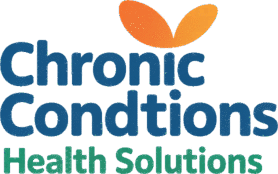Impact of Regular Physical Activity on Heart Health
Consistent exercise strengthens the heart, improves blood flow, and reduces cardiovascular risk factors, enhancing overall well-being.

Statistics reveal that engaging in regular physical activity can reduce the risk of heart disease by as much as 30-40%. It's time to explore how exercise physiology plays a pivotal role in safeguarding your heart health.
This visual highlights key benefits of exercise physiology in promoting heart health and the actionable steps to integrate physical activity into daily life.
Consistent exercise strengthens the heart, improves blood flow, and reduces cardiovascular risk factors, enhancing overall well-being.
Exercise physiology is a fascinating field that focuses on how physical activity impacts the body's biological systems. It’s not just about getting fit—it's about understanding the complex interactions between movement, health, and disease prevention. At Chronic Conditions Health Solutions, we emphasize the importance of these principles, especially when it comes to managing chronic conditions like heart disease.
In my experience as an exercise physiologist, I've seen how tailored exercise interventions can significantly improve heart health and overall well-being. By integrating evidence-based practices, we can create effective strategies that promote better health outcomes for individuals, especially those living with chronic conditions.
Exercise physiology involves studying the body’s responses to physical activity, focusing on how exercise influences various bodily functions. Some key concepts include:
Recognizing these concepts is crucial since they form the foundation for creating personalized exercise programs. These programs can help manage chronic conditions more effectively, leading to improved health outcomes.
The link between exercise physiology and cardiovascular health is profound. Regular physical activity enhances heart function and reduces the risk of cardiovascular diseases. Here’s how:
By understanding these connections, we can better appreciate how tailored exercise interventions can make a meaningful difference in our clients' lives.
Cardiovascular fitness is essential for maintaining a healthy heart. It reflects the efficiency of the heart, lungs, and muscles when performing sustained physical activity. Key benefits of improving cardiovascular fitness include:
At Chronic Conditions Health Solutions, we believe that enhancing cardiovascular fitness not only supports heart health but also contributes to overall well-being. It’s a fundamental component of our personalized exercise plans!
Did you know? Incorporating just 30 minutes of moderate exercise into your daily routine can significantly enhance your heart health and overall well-being? Whether it's brisk walking, cycling, or swimming, find an activity you enjoy and make it a regular part of your life. Consistency is key!
As we wrap up our discussion on exercise physiology and its crucial role in heart health, it’s important to highlight the numerous benefits that regular physical activity offers. Engaging in consistent exercise not only strengthens the heart but also contributes to an overall healthier lifestyle. This commitment to a physically active life can lead to improved cardiovascular function, reduced risk of chronic diseases, and enhanced well-being.
In my experience at Chronic Conditions Health Solutions, I’ve seen firsthand how individuals can transform their lives with a structured exercise regimen tailored to their unique needs. Here are some key takeaways on the benefits of regular physical activity:
Embracing these benefits can indeed pave the way for a healthier heart and a more fulfilling life. Remember, the journey towards heart health is a marathon, not a sprint—every small step counts!
It's vital to understand that promoting heart health is not just a short-term endeavor; it’s about developing lifelong habits that support your well-being. Each one of us has the potential to make choices that favor our heart health, and it starts with a conscious commitment to exercise and good nutrition.
At Chronic Conditions Health Solutions, we encourage our clients to integrate heart-healthy habits into their daily routines. Here are some practical strategies to foster this lifelong commitment:
By focusing on these strategies, you can not only improve your heart health but also enjoy the process of becoming more active and engaged in your own wellness journey!
Now that we’ve explored the benefits of exercise physiology, let’s discuss some actionable steps to incorporate physical activity into your daily life. Whether you’re just starting or looking to enhance your existing routine, taking consistent action is key!
Starting an exercise regimen doesn’t have to feel overwhelming. In fact, it can be quite enjoyable! Here are some practical tips that I often share with my clients to help them get started:
Remember, the most important thing is to stay consistent. Progress takes time, but with patience and persistence, you can achieve your fitness goals!
Tracking your progress can be a great motivator and can help keep you accountable on your fitness journey. There are many resources and tools available to assist you, including:
Using these tools can provide insights into your progress and help you stay committed to your heart health goals.
Lastly, I encourage you to consider fitness assessments as part of your exercise journey. These assessments can help tailor your workout plan to meet your specific needs and fitness levels. At Chronic Conditions Health Solutions, we emphasize the importance of personalized exercise prescriptions that consider your individual health status and goals.
Here are a few benefits of utilizing fitness assessments:
By investing in a fitness assessment, you’re taking a proactive step towards optimal heart health! Together, we can create a personalized path that leads you to a healthier, happier you!
Here is a quick recap of the important points discussed in the article:
At Chronic Conditions Health Solutions, we're dedicated to transforming chronic disease management through personalized exercise physiology and evidence-based lifestyle interventions. Dr. Emilia Carter and our team empower you to achieve better health outcomes and a more fulfilling life. Your well-being is our priority.
